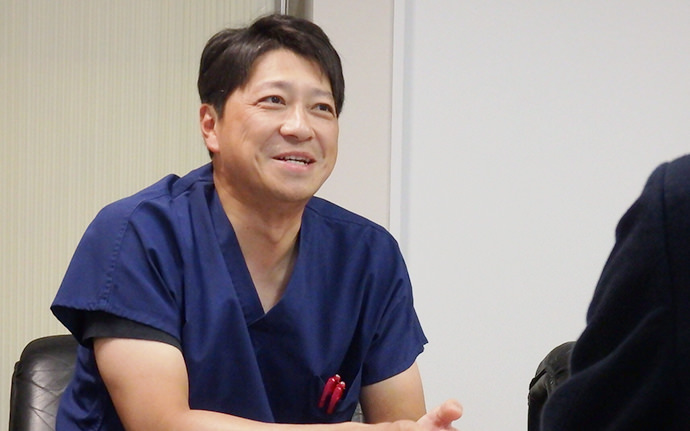
Persons who have to remain in the same posture, such as drivers or farmers sitting or crouching for a long time, should take precautions for anal disorders, which are likely to develop due to pressure on the anal region. After sitting for more than one hour, it is recommended to stretch your back, stand up or bend your knees and do stretching exercises.
Caution should be exercised not to drink excessive alcohol. Although the relationship is unclear, there are many patients visiting our hospital due to anal bleeding on the day after excessive alcohol intake. In addition, a metabolite of alcohol may cause dermatitis. As excessive alcohol intake may affect the anal condition, patients with symptoms of hemorrhoids should refrain from drinking too much alcohol.
"Anal bleeding" is the most common reason for visits to our hospital, and it is most important that patients suffering from repeated bleedings do not assume that the bleeding is from hemorrhoids and can be left untreated. This is because there may be a risk of “colorectal cancer.” Some patients visit our hospital for anal bleeding after having left it untreated for more than one year. This can be extremely dangerous. Caution must also be taken for sudden changes in the form of stools. If your stools become thinner or if you always have soft stools, such findings are also warning signs for colorectal cancer. Constipation may also be caused by colorectal cancer. If you notice any abnormalities, visit a hospital immediately. Although hemorrhoids can be cured, colorectal cancer is difficult to cure unless detected early.
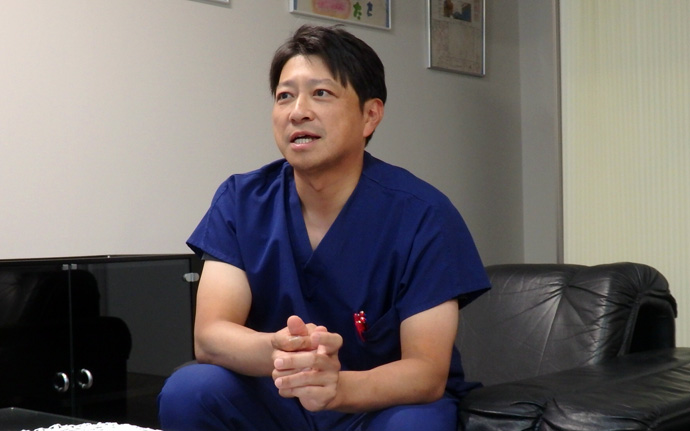
In our hospital, patients are given a number card at the reception desk and are called with the assigned number in consideration of personal information and privacy. At the initial visit, a physician performs history taking in the examination room and then examines the patient’s condition while the patient is in a recumbent position after taking off their lower garments. The patient is requested to cover the lower half of the body with a towel while waiting until the physical examination starts. Some patients are concerned about anal bleeding during treatment. Although a minor bleeding may occur in the presence of anal stenosis or anal fissure, bleeding will not be caused by the physical examination. After the physical examination, the doctor will give the patient an explanation about the condition and the instructions for use of drugs. About one hour will be required for the first visit to be completed from arrival to leaving our hospital although the required time may differ according to the scheduling on that day. The medical expenses are 2,000 to 3,000 yen for physical examinations and 2,000 to 3,000 yen for medications.
Ligation and excision (LE) is the standard surgical procedure for hemorrhoids (piles) because this is a highly curative surgery. However, there are risks of postoperative bleeding, pain, and anal stenosis. The “anal cushion lifting (ACL) technique” is performed at our clinic. It is said that hemorrhoids are caused by downward displacement and hypertrophy of tissues like a rubber stopper (anal cushions) which anatomically play a role in preventing anal leakage. This means that the portion of hemorrhoids (anal cushions) are necessary and should be “reverted to the original position” without being excised. This is the concept of "ACL technique." This technique can afford great pain relief causing almost no abnormality in anal function. It also causes almost no change in the appearance of the affected area because no excision is performed. The "ACL technique" is described in the Japanese Practice Guidelines for Anal Disorders published in 2014, and has become the main treatment in the past few years. However, since hemorrhoids are just reverted to the original position in the "ACL technique," recurrence is more likely after this technique than after surgical excision procedure. Therefore, patients must pay thorough attention to their lifestyle after undergoing the ACL technique. Lifestyle guidance is also provided for this purpose.
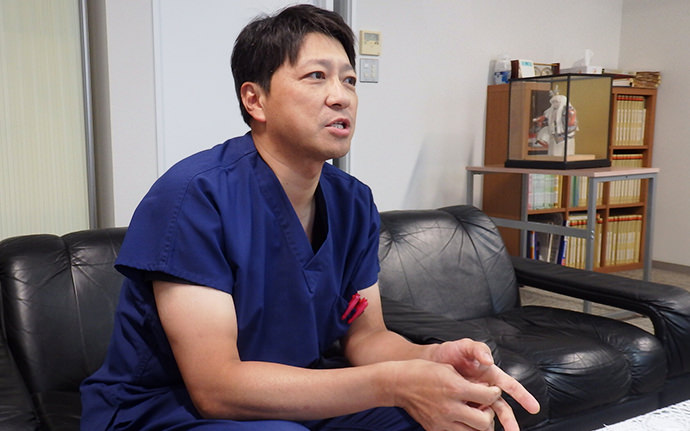
Anal fissure is basically caused by fecal abnormalities (too hard or too soft). The skin around the anus may be damaged by excessive washing or rubbing of the anus. Therefore, conservative therapy, such as improvement of stool consistency by diet and/or drug therapies, and instructions on proper defecation and proper anal irrigation, is the basic treatment of anal fissure. However, repeated recurrence of anal fissure for years may lead to narrowing of the anus (anal stenosis). Such a condition requires surgery. Surgery includes manual dilatation of the anus by inserting fingers into the anus to enlarge the narrowed anus or anal dilatation surgery performed for severe anal stenosis. Manual dilatation of the anus can be (easily) performed as outpatient surgery, but anal dilatation surgery requires hospitalization.
Anal fistula cannot be completely cured by conservative therapy, and therefore surgery is required for a complete cure of this condition. Surgical procedures vary widely depending on the types of anal fistula. In many cases, they cannot be cured by outpatient surgery. Anesthesia is also one of the burdens on patients in the treatment of anal fistula. For patients with an abscess, a local anesthetic is commonly injected into the affected area before incision, and this anesthesia injection itself is very painful. However, I think that the burden on patients is reduced considerably because there is no pain associated with "sacral epidural anesthesia" which is in use at our hospital. Since "sacral epidural anesthesia" is applied only to the perianal area and will wear off in about 2 hours, this anesthesia is being used for various types of surgeries including outpatient surgery.
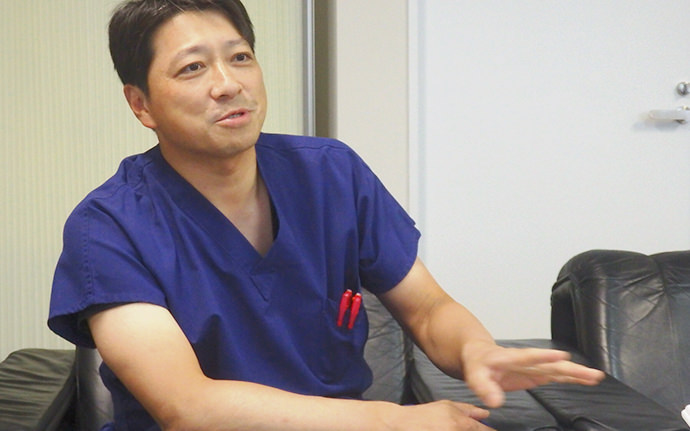
Constipation is one of the major causes of hemorrhoids. One of the treatments for constipation is improvement of patients’ eating and lifestyle habits, and the other is treatment with medications. Medication therapy (drug therapy) is performed to regulate stool conditions; however, irritant laxatives are not used at out hospital. Long-term use of irritant laxatives may destroy nerve cells in the large intestine and may decrease its functions, resulting in further worsening of constipation. Constipation can be caused by colorectal cancer, internal diseases, drugs, or "irritable bowel syndrome" due to an autonomic nervous system imbalance, or by "rectal constipation" in which stools cannot be excreted despite reaching the rectum. Since there are various types of constipation, it is important to initiate treatment after establishing the diagnosis of the type of constipation.
Unnecessarily frequent use of the warm water washing toilet seat can damage the anal area. The overuse of a washing toilet seat seems not to be related to the development of hemorrhoids (piles) or anal fistula but may have a detrimental effect on anal fissure. Strong water pressure will irritate the anus. Excessive cleansing of the anus may lead to the complete elimination of indigenous bacteria around the anus. In such a case, the immunity of the anus may deteriorate, leading to diseases such as anal candidiasis. Excessive use of a washing toilet seat may increase the risk of anal fissure. So, it is recommended to apply warm water spray to the anus for only a few seconds and stop the spray when no fecal matter is found on the toilet paper. Too much washing with solid soap during bathing or too much cleansing with disinfectant may also cause sores or itching around the anus or anal fissure due to skin fragility, so caution should be exercised.
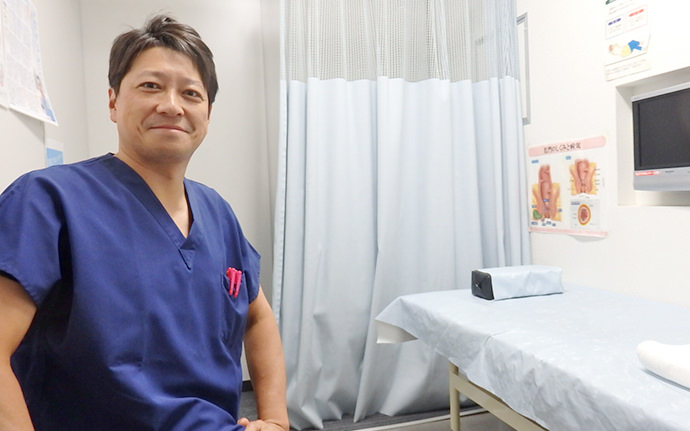
It is generally accepted that fluid intake is important. Since 80% to 90% of stool content is water, inadequate fluid intake may soon lead to hard stools and difficult defecation. Another essential material is dietary fiber. Since dietary fiber is excreted almost indigested, it increases fecal volume and activates bowel functions. This is particularly effective for patients who are on a diet with reduced food intake. Dietary fiber is also good for the intestinal environment because it feeds/increases probiotics. In addition, oil is also important to make stools smooth. Animal fats raise the possibility of constipation because they increase harmful bacteria. It is recommended to ingest oil from blue fish or olive oil if possible.